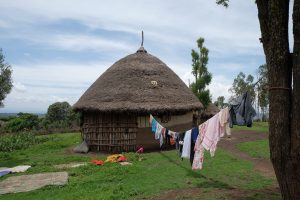ESSP Working Paper 83, by Hosaena Ghebru, Bethelhem Koru, and Alemayehu Seyoum Taffesse.
Abstract: The study assesses factors that explain households’ perceived tenure insecurity and the demand for new formalization of land rights in Ethiopia. We use data from the 2013 Agricultural Growth Program (AGP) survey of 7,500 households from high agricultural potential areas of Ethiopia. The results from a logistic estimation and a descriptive analysis reveal that the demand for further land demarcation is positively associated with higher perception of tenure insecurity. Moreover, disaggregated regression results indicate that ownership and boundary-related disputes characterize peri-urban locations and vibrant communities, whereas perceived risk of government expropriation of land is mainly manifested in predominantly rural communities and areas where administrative land redistribution is a recent practices. Hence, the rollout strategy for the recent wave of the Second-Level Land Certification agenda should avoid a blanket approach, as it can only be considered a best fit for those vibrant and peri-urban locations where demand for further formalization is higher and boundary and ownership related disputes are more common. However, focusing similar interventions in predominantly agrarian communities and communities with recent administrative land distributions may not be advisable since expropriation risk seems to be dictating perceived tenure insecurity of households in such locations. Rather, regulatory reforms in the form of strengthening the depth of rights over land, such as formalization of rural land lease markets and abolishing conditional restrictions on inter-generational land transfers. Download the PDF.
